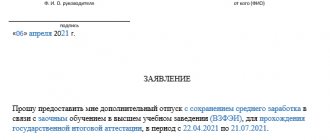Evasion of paying child support is the most common violation of the rights of minors and disabled adults.
In connection with this legislation, means of punishment for such crimes have been developed. Art. 157 of the Criminal Code of the Russian Federation determines the types and measures of punishment for these acts. Multi-channel free hotline Legal advice on criminal law. Every day from 9.00 to 21.00
Moscow and region: +7 (495) 662-44-36
St. Petersburg: +7 (812) 449-43-40
The concept and essence of alimony payments
Child support is the responsibility of both parents . These are cash payments that are necessary to support a child until he reaches 18 years of age. This is the narrow meaning of this concept.
In a broader sense, alimony is a payment for the maintenance of an individual who, due to a serious health condition or other reasons, cannot independently provide himself with financial resources for subsistence.
Alimony may be paid to the following categories of persons:
- Children under 18 years of age;
- Disabled parents.
The following may act as alimony debtors:
- Spouses present and former;
- Common-law spouses registered as parents;
- Children over 18 years of age;
- Emancipated children over 16 years of age;
- Other family members recognized as guardians in the absence of parents.
If the spouses were able to peacefully agree on the order of child support, they can independently conclude a bilateral agreement on this.
If the spouses are in a state of conflict and cannot divide the children, this issue can only be resolved in court.
What is considered malicious evasion?
Malicious evasion of payment of alimony is a failure by a parent to fulfill the obligation to support a minor child, when the failure to fulfill is systematic, deliberate and prolonged.
The set of signs characterizing malicious evasion is defined in Resolution of the Plenum of the Armed Forces of the Russian Federation No. 44 and is as follows:
- Attempts to hide property or sources of income;
- Change of job or place of residence without notifying bailiffs;
- Administrative violations for non-payment of alimony;
- Criminal penalties for non-payment of alimony.
Only that person in respect of whom there is a court decision that has entered into force on the obligation to pay alimony payments can be recognized as a malicious evader for non-payment of alimony.
In addition, for a parent’s behavior to be recognized as a malicious violation, there must be an impressive amount of debt and direct intent in his behavior.
If a person is a couple of months late in payment, this will not be grounds for initiating a criminal case against him for non-payment of alimony.
Commentary to Art. 157 of the Criminal Code of the Russian Federation
Criminal liability for non-payment of alimony under Article 157 of the Criminal Code with the latest amendments is commented on by legal scholars and legal consultants, taking into account the consideration of the elements of a criminal offense.
The objective side of non-payment of alimony under both parts of Article 157 of the Criminal Code of the Russian Federation is the parent’s malicious evasion of the obligation to provide financial support for minors and disabled children.
Evasion of monetary payments to provide children with the necessary financial resources is the failure to make alimony payments by the ex-husband - the father of the child (or the ex-wife - mother), as well as the failure by this person to provide the following information:
- About changing the place of official employment.
- About dismissal.
- Availability of additional sources of income.
- On changes in wages and the like (under Article 111 of the RF IC).
The concept of malicious evasion is spelled out in legislation.
Each judge evaluates it differently. General practice in court cases considers evasion of the obligation to pay financial obligations as the second and subsequent non-payment after the issuance of a warning, the search for a child support father, and repeated evasion of payments by the obligated person. The crime is completed from the beginning of the refusal to pay money for the maintenance of children and spouses (if the children are small - from infancy to three years) or from the establishment of maliciousness in evading payments.
The subjective side is guilt, which is expressed in the form of direct intent.
Article 157 “Non-payment of alimony” defines the subject of the crime as a special one. The subject includes:
- persons who are indicated in the child’s birth documents as parents;
- parents whose paternity of the child is established under Article 49 of the Family Code of the Russian Federation;
- parents in respect of whom a judge has made a decision to deprive them of parental rights.
According to the second part of this article, the objective party will be considered the evasion of the malicious nature of able-bodied and adult children from paying money for the maintenance of disabled parents.
The subjects of the offense are also special subjects - children who are able-bodied and adults. If parents have previously been deprived of parental rights, they are released from the obligation to pay child support.
The list of elements considered is complete and no new elements are added to it.
What are the consequences of non-payment of alimony?
The obligation to pay alimony is enshrined in Art. 80 of the Family Code . The same codified act establishes a penalty as the first type of liability for late payment of alimony.
In Art. 115 of the RF IC defines this sanction . But here we are not talking about malicious evasion of alimony obligations.
More serious and systematic violations of alimony payments entail administrative or criminal liability.
As a rule, first, the draft dodger is repeatedly brought to administrative responsibility. If the behavior is not corrected, criminal liability is applied to it.
Execution of a court decision
As part of civil proceedings, a decision is made to award alimony for the maintenance of a minor child. A month later, when the decision comes into force, it will be transferred to the bailiffs for execution.
The bailiffs are obliged to immediately open enforcement proceedings and, if the defendant evades execution of the decision, apply compulsory enforcement measures against him. They are enshrined in Art. 64 and art. 68 Federal Law “On Enforcement Proceedings”.
In particular, bailiffs have the right to apply the following penalties against the evader:
- Search for the defendant’s property and its location;
- Seizure of the debtor's property and its sale at auction;
- Seizure of accounts;
- Restrictions on driving a car;
- Ban on traveling outside the country, etc.
The bailiff, on his own initiative, can take measures against the debtor to enforce a court decision and even bring him to administrative responsibility.
The plaintiff in a civil case, in whose favor alimony will be collected, must cooperate in every possible way with the bailiffs and assist them in the execution of the court decision.
Administrative liability for non-payment of alimony
What will happen for non-payment of alimony under the Code of Administrative Offenses of the Russian Federation? Administrative materials on bringing to justice persons who evade payment of alimony are considered by the magistrate's court.
Administrative liability in accordance with the Code of Administrative Offenses of the Russian Federation can be applied to draft dodgers under several articles, in particular:
- For failure to comply with the requirements of the bailiff or for providing false information, the defendant may be punished with a fine of 1 to 2.5 thousand rubles on the basis of Art. 17.14 Code of Administrative Offenses of the Russian Federation.
- For a two-month delay in non-payment of alimony, a draft dodger can be prosecuted under Art. 5.35.1 Code of Administrative Offenses of the Russian Federation. In this case, sanctions may be applied to him in the form of compulsory work for up to 150 hours, administrative arrest for 10-15 days, or a fine of up to 20 thousand rubles.
A penalty can only be applied to certain categories of citizens: military personnel, police officers, disabled people, etc.
The bailiff is obliged to deliver the offender to the courtroom and be present in court until a ruling is made against him. This is because the judge can impose arrest as a punishment.
To ensure that the draft dodger does not escape, the bailiff will have to accompany him to the place of execution of the punishment.
Criminal liability for non-payment of alimony
Criminal liability under Art. 157 of the Criminal Code of the Russian Federation is an extreme measure of influence on malicious draft dodgers.
In order to bring the offender to criminal responsibility, at least 4 months of evasion are necessary.
As a punishment under Art. 157 of the Criminal Code of the Russian Federation can be applied:
- Correctional labor for up to a year;
- Forced labor for up to a year;
- Arrest up to 3 months;
- Imprisonment for up to a year.
These measures can be applied against unscrupulous parents . When the evaders are able-bodied children who do not fulfill the responsibilities of supporting their disabled parents, the punishment will have exactly the same types and sizes.
In court, the defendant will need to prove with documents that he paid at least some minimum money for the maintenance of the child.
In a situation where a child was placed in an orphanage, employees of the orphanage can initiate a criminal case against the unscrupulous parent.
Family legal responsibility
In combination with criminal or administrative liability, family law liability can be applied separately.
In accordance with the RF IC, two types of liability can be applied to draft evaders:
- Calculation of penalties on the amount of debt. According to Art. 115 of the RF IC for each day of delay a penalty of 0.5% must be charged.
- Deprivation of parental rights from father or mother. According to Art. 69 of the RF IC, any violation of the obligation to support children can lead to the deprivation of paternity by the guardianship authorities and the PDN.
Even after deprivation or restriction of parental rights in relation to unscrupulous parents, they retain the right to pay child support.
Can they be jailed for failure to pay child support?
How long can they be imprisoned for such a crime? Theoretically, according to Art. 157 of the Criminal Code of the Russian Federation, a malicious evader can be imprisoned for up to one year. But in fact, this happens extremely rarely.
In order for a real period of imprisonment to arise for non-payment of alimony, a confluence of certain circumstances is necessary:
- The defendant has an outstanding criminal record;
- The defendant has an outstanding period of parole;
- The defendant fails to comply with the imposed requirements of the sentence. At the initiative of employees of the criminal-executive inspection, if the procedure for executing a court decision is not observed, the sentence may be revised.
- The presence of a large number of aggravating circumstances.
That is why the question: whether people are imprisoned for failure to pay alimony cannot be reliably determined . When considering a criminal case, the judge will determine the punishment.
Article 157 of the Criminal Code of the Russian Federation (“Non-payment of funds for the maintenance of children or disabled parents”)
The Criminal Code of the Russian Federation states that parents who regularly do not provide financial support for their children under the age of majority and disabled adults, but are obliged to do this on the basis of a court decision or an agreement certified by a notary between parents, bear criminal liability for this.
Types of liability include the following:
- forced or forced labor;
- arrest;
- deprivation of liberty.
Each type of punishment can be imposed for up to a year, with the exception of arrest. Its maximum duration, in contrast to serving a sentence in prison, is three months.
If adult children who are able-bodied regularly do not provide financial support for their disabled or incapacitated parents, but are required to do so on the basis of a court decision or a notarized agreement between the parties, they are also criminally liable for this.
The limits and types of criminal liability for these acts are the same as in the case of providing for children.
The Criminal Code contains a note to this article, which explains the concepts of “non-payment of alimony by parents” and “non-payment of alimony by children”.
Failure to pay money awarded by a court decision that has entered into force or established by a notarial agreement between parents for the maintenance of minor children (or adults but disabled), if this act is repeated and there are no valid grounds for evading payment of the required amounts, provides for criminal prosecution liability for non-payment of alimony under Article 157 of the Code, if the debtor at the time of consideration of the case before the judge pronounces a sentence is a defendant in an administrative case under the Code of Administrative Offenses of the Russian Federation (Article 5.35.1).
A similar interpretation is provided if the subject (criminal) is an able-bodied child in relation to a disabled parent.
How to initiate a criminal case for alimony?
Not every alimony payment evader can be prosecuted under Art. 157 of the Criminal Code of the Russian Federation.
In order to initiate a criminal case for alimony, it is necessary to follow the legal procedure, take the initiative and involve employees of many services and authorities.
In order for it to be possible to bring a person to criminal liability, it is necessary, first of all, a civil decision to collect alimony.
Civil case for the collection of alimony
The entire process of enforcement proceedings begins with an application to the court to award one of the parents the obligation to make child support payments.
Alimony can be collected through a statement of claim or a court order. A court order is issued if the person who will be the defendant in the case has one child. This is a summary proceeding and does not involve trial.
Usually it goes like this. The mother writes an application for a court order to collect alimony, after which the judge issues it within 5 days. The applicant independently submits this document for execution to the bailiffs or to the work of the defendant.
When the defendant already pays alimony for a child, the issue of awarding these payments to the second child will be resolved through the claim proceedings.
In this case, the parties to the process will be called to resolve the issue, including other wives to whom the defendant is already paying alimony for other children.
Criminal proceedings
The inquiry procedure under Art. 157 of the Criminal Code of the Russian Federation is carried out by an employee of the bailiff service . The defendant must be assigned a defense attorney.
To initiate a criminal case, it is necessary to apply from the debtor, which will outline the debtor’s violations. Based on it, the bailiff draws up a report, which he passes on to the FSSP investigator.
As a general rule, the investigator has 3 days to verify the information about violations contained in the report.
After the initiation of a criminal case, the investigator makes a decision recognizing the minor child as the injured party.
After this, the investigator interrogates all participants in the criminal case, draws up an indictment and transfers the materials to the prosecutor's office.
Crime in 2021 under Art. 157 of the Criminal Code of the Russian Federation will be considered by a magistrate. Such cases, as a rule, are considered in a special order when the defendant pleads guilty.
Malicious evasion of non-payment of alimony, although a crime of minor gravity, is regulated by a large list of legislative acts.
This disorder has serious negative consequences for the well-being of the younger generation.
Parents are obliged to support their children no matter what: job loss, financial difficulties, conflicts with former partners and other unimportant circumstances.
Judicial practice under Article 157 of the Criminal Code of the Russian Federation
When asked whether they can be imprisoned for failure to pay alimony, judicial practice in most cases gives a negative answer.
This is due to the fact that this type of liability is brought to bear only after repeated administrative penalties and after two notifications of impending criminal consequences have been served.
In most cases, after the court issues warnings, the obligated person pays money for the maintenance of the children for some time, and after the period for bringing them to justice has passed, they stop paying. And the deadline begins to count down again.
According to the Criminal Code of the Russian Federation, failure to pay alimony can lead to criminal liability in the event of repeated delays in payments for more than four months.
Judicial practice in 2021 shows that severe punishment occurs only after all administrative types have been exhausted (fine, compulsory and forced labor, arrest for several days).
Case No. 5-278 of 2021 is an example. An administrative case was initiated against citizen E.V. Kolchakov under Article 5.35.1 with the imposition of a certain type of punishment. For two months after the administrative decision was made, he continued to evade financial support for his two minor children. Based on the fact of non-payment, a statement was received from the children’s mother, a new administrative case was opened and sent to court.
The judicial body, having examined the materials collected by the inquiry body, came to the conclusion that the defendant is guilty of committing an offense under the article providing for evasion of financial support for children.
Based on the materials in the case and the repentance of the defendant, the court made the following decision:
- found guilty of committing an administrative offense by omission under Article 5.35.1;
- impose an administrative penalty on the defaulter in the form of compulsory labor activity for sixty hours.
Due to the fact that the punishment was quite mild, the guilty party did not appeal.




